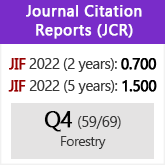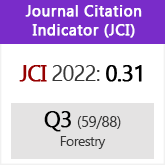Phenotypic plasticity: a useful framework for understanding adaptation in forest species
Abstract
Phenotypic plasticity is a relatively new name for a very old issue in plant sciences: the ability of a genotype to generate a range of different phenotypes, depending on the environment. Contrasting with a great deal of published research works recognising plastic responses in a wide variety of organisms, direct evidences of the adaptive role of such responses are still scarce and the evolutionary implications of phenotypic plasticity is under discussion. Different types of plasticity, operating at different levels within individuals or across generations have been recognised and several methodologies have been applied to characterize and quantify plasticity. Further research on this issue regarding forest tree species, especially in Mediterranean ecosystems is needed in order to understand the impact that global climate change may have on the existing populations.Downloads
© CSIC. Manuscripts published in both the printed and online versions of this Journal are the property of Consejo Superior de Investigaciones Científicas, and quoting this source is a requirement for any partial or full reproduction.
All contents of this electronic edition, except where otherwise noted, are distributed under a “Creative Commons Attribution 4.0 International” (CC BY 4.0) License. You may read here the basic information and the legal text of the license. The indication of the CC BY 4.0 License must be expressly stated in this way when necessary.
Self-archiving in repositories, personal webpages or similar, of any version other than the published by the Editor, is not allowed.















